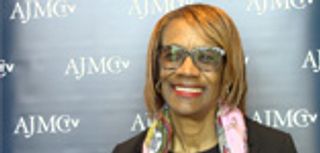
Oncology
Latest News
Latest Videos

CME Content
More News

As the task of describing value delivery in cancer care seems to grow in complexity the closer that we examine it, this is essential in order to both rationally control the growth of healthcare costs and ensure that we do not undermine patient care.

The emergence of alternative payment models, as exemplified by the Oncology Care Model, is requiring oncologists to develop new solutions to meet the requirements of these programs. Technology available at the point of care offers an efficient solution to many of the most labor-intensive processes.

The American Society of Clinical Oncology (ASCO) has raised concerns that utilization management strategies, especially for high-cost prescription drugs, could reduce patient access.

Amendments to the Americans with Disabilities Act in 2009 have not eliminated instances of workplace discrimination against employees with cancer, according to a recently published study.

JAMA study highlights need for considering patient preferences when choosing between treatment options for prostate cancer.

The Deloitte Center for Health Solutions recently interviewed individuals from health plans, providers, and clinical pathway developers that are participating, supporting, or evaluating oncology payment models to understand what approaches are perceived to be working, the early results, and the potential impact on innovation.

The approval comes following phase 2 results of 119 patients who participated in the IMvigor210 study.

Oncology care management helps coordinate the clinical aspects of cancer treatment, but it would also be helpful to have a benefits manager to help guide patients through their many options, said Marianne Fazen, PhD, president and CEO of the Texas Business Group on Health.

A dive into the Quality Payment Program and other healthcare reform models introduced in cancer care that healthcare providers are adjusting to as we move toward value-based care.

By identifying ways to improve cancer care and then designing alternative payment models (APMs) to overcome current payment barriers, APMs can enable oncology practices to deliver better care to patients and save money for payers in a way that is financially sustainable for the practices.

A new study has found some concerning gaps in cervical cancer screening among a vulnerable population: women with severe mental illness enrolled in a state Medicaid program.

A study published in The Oncologist concluded that discrepant variant classification in public databases can introduce uncertainty and diminish patient care.

Every week, The American Journal of Managed Care® recaps the top managed care news of the week, and you can now listen to it on our podcast, Managed Care Cast.

This week, the top managed care stories include an update for prostate cancer screening guidelines; the consequences of conflicting breast cancer guidelines; and Florida seeks work requirements for Medicaid.

Study identifies need for surgeons to maximize benefits of genetic testing for surgical decisions in breast cancer.

A new study has explored factors that impact patient adherence to oral chemotherapy regimens and found that improved satisfaction with their treatment and clinician was most strongly linked to better adherence.

Adding a test that evaluates stool samples for DNA and protein biomarkers to the list of tools providers can use to boost quality ratings is seen as an additional boost for Cologuard.

A new study published in JAMA Internal Medicine has found that the extent to which clinicians follow breast cancer screening guidelines for patients of different ages varies by their specialty and by which set of recommendations they trust most.

Exposure to tobacco smoke as a fetus or during early childhood can cause genetic changes that can increase a child’s risk of developing acute lymphoblastic leukemia (ALL).


CAR-T cell treatment can have a number of side effects, with the most serious being cytokine release syndrome, according to David L. Porter, MD, of the University of Pennsylvania Health System. However, there are some promising therapies like interleukin-6 blockers that can reverse this reaction.

A new study finds that women with ovarian cancer who were black or Hispanic tended to undergo more aggressive treatment and were less likely to receive hospice services at the end of life.

A new study published in Clinical Cancer Research provides evidence that researchers can use biomarkers to identify patients whose tumors will grow at a faster rate following immunotherapy treatment.

Providers have a responsibility to discuss the costs of cancer care with their patients earlier on, so the patients aren’t blindsided by enormous bills, said Samantha Watson, founder and CEO of The Samfund. These conversations would help patients prepare for the financial realities associated with cancer.

Hispanics and blacks with colorectal cancer report a higher burden of poor health-related quality of life (HR-QoL) compared with white patients, according to study results presented at the annual meeting of the American Association for Cancer Research.

















